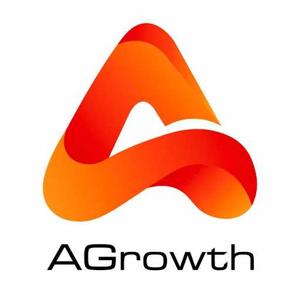Selecting the right Google Ads campaign type isn’t just a setup choice — it’s a strategic decision that defines your entire marketing approach. Each campaign type serves a distinct purpose, caters to different audience behaviors, and drives unique outcomes across the marketing funnel. This guide breaks down every major campaign type, their key features, and how to choose the right one for your business goals.
What Are Google Ads Campaign Types?
A campaign type determines where your ads appear, what formats you can use, and how your targeting and bidding strategies operate. Google currently offers several main campaign types: Search, Display, Video, Shopping, App, Demand Gen, and Performance Max.
Think of campaign types as your foundation — the blueprint that guides everything else from creative format to performance metrics.
1. Search Campaigns
What They Are
Text-based ads that appear on Google Search when users actively look for products or services.
Why They Matter
Search ads target high-intent traffic, meaning users are already interested in what you offer.
Key Features
Keyword-based targeting
Responsive Search Ads (RSAs) for automated headline testing
Layered audience segmentation
Best For
Lead generation
E-commerce conversions
Local businesses targeting “near me” searches
Example:
A home repair company bids on “24/7 plumber near me.” Their ad appears at the top of Google Search, leading directly to a call-to-action landing page — converting urgent, intent-driven users.
2. Display Campaigns
What They Are
Visual banner ads shown across the Google Display Network (over 2 million websites, apps, and Gmail).
Why They Matter
Display campaigns focus on brand visibility and remarketing, keeping your brand top-of-mind.
Key Features
Targeting by demographics, interests, or behavior
Responsive Display Ads that auto-fit placements
Ideal for awareness and re-engagement
Best For
Increasing brand recognition
Retargeting previous visitors
Promoting new offers or seasonal events
3. Video Campaigns
What They Are
Video-based ads running primarily on YouTube and across the Display Network.
Why They Matter
Video ads combine storytelling and emotional engagement, boosting recall and intent.
Key Features
Formats include skippable, non-skippable, in-feed, and bumper ads
Deep audience targeting using YouTube behavior
Performance tracking by views, engagement, and conversions
Best For
Building awareness and emotional connection
Product demonstrations
Retargeting through engaging visual content
Example:
A car brand uses a 15-second YouTube ad showcasing its latest SUV’s design, reaching audiences interested in “family cars” and “road trips.”
4. Shopping Campaigns
What They Are
Highly visual ads showing product images, prices, and store information directly on Google Search and the Shopping tab.
Why They Matter
Shopping ads simplify the buying journey — customers see product info before they click.
Key Features
Product data from Google Merchant Center
Ads appear in Search, Images, and Google Shopping tab
Ideal for high-intent eCommerce traffic
Best For
Driving online and local retail sales
Showcasing promotions
Competing for product-specific keywords
5. App Campaigns
What They Are
Automated campaigns promoting app installs or in-app actions across Search, Play Store, YouTube, and Display.
Why They Matter
They leverage Google’s AI to reach users most likely to install or engage with your app.
Key Features
Machine learning–based targeting and bidding
Optimized for installs, in-app actions, or lifetime value
Appear on multiple networks simultaneously
Best For
Boosting downloads
Increasing engagement
Scaling app user acquisition
6. Demand Gen Campaigns
What They Are
The evolution of Discovery campaigns — designed to reach users before they search, using visually rich formats across YouTube Shorts, Discover, and Gmail.
Why They Matter
They bridge awareness and consideration by showing products to users open to discovery.
Key Features
AI-powered audience expansion
Engaging carousel and image-based creatives
Focused on feed-based placements
Best For
Mid-funnel engagement
Driving traffic from visually interactive content
Retargeting potential customers in lifestyle feeds
7. Performance Max Campaigns
What They Are
An AI-driven campaign type that unifies all Google channels — Search, Display, YouTube, Discover, Gmail, and Maps — in a single campaign.
Why They Matter
Performance Max uses automation to find and convert users across Google’s ecosystem based on your business goals.
Key Features
Full cross-channel reach
Automated bidding, targeting, and creative optimization
Uses audience signals and conversion data for learning
Best For
Scaling conversions
Simplifying management across channels
Maximizing ROI with automation
How to Choose the Right Campaign Type
Goal
Best Campaign Type
Why It Works
Capture High-Intent Traffic
Search
Targets active buyers searching for your solution
Drive Online Sales
Shopping / PMax
Product visibility + automation for conversion
Build Brand Awareness
Display / Video
Massive reach with strong visuals
Retarget Visitors
Display / Demand Gen
Keeps your brand visible post-visit
App Installs
App Campaign
AI-optimized delivery for installs & engagement
Common Mistakes to Avoid
Mismatching Campaign to Goal: Using Display for lead generation or Search for top-of-funnel awareness.
Neglecting Creative Assets: Performance Max and Demand Gen rely heavily on diverse creatives.
Ignoring Customer Journey: Focus on full-funnel strategies, not isolated campaign types.
Over-Automation: AI works best with strong input — review and refine regularly.
Poor Tracking Setup: Always ensure conversion tracking is active before scaling spend.
Final Thoughts
Each Google Ads campaign type serves a distinct role in your marketing funnel.
Choosing the right mix — and aligning it with your objectives — determines how efficiently you capture, nurture, and convert your audience.
By combining data-driven experimentation with creative testing, advertisers can transform Google Ads from a cost center into a scalable growth engine.
Recommended Resources for Google Ads Campaign Types
Google Ads Campaign Types
Detailed overview of all campaign types, their strengths, and how to choose the best fit for your goals.
Rent a Google Ads Agency Account
Access a managed, high-tier Google Ads account with expert guidance, flexible billing, and improved stability.


Write a comment ...